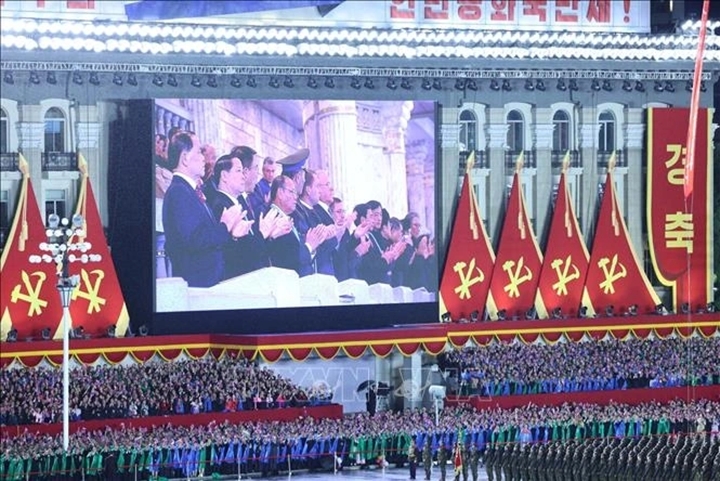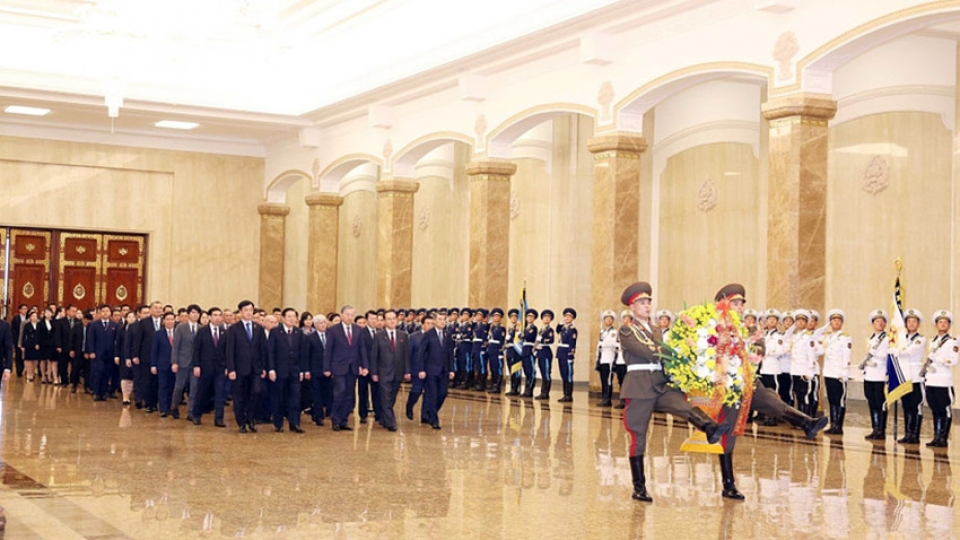Vietnamese leader To Lam attends 80th anniversary of Workers’ Party of Korea
VOV.VN - Party General Secretary To Lam joined other foreign leaders at a grand ceremony at Kim Il-sung Square in Pyongyang, the Democratic People’s Republic of Korea (DPRK), on October 10, marking the 80th anniversary of the Workers’ Party of Korea.

The celebration featured cannon salutes, an honour guard parade, and large balloons carrying banners flying over the central square. Red flags of the Workers’ Party of Korea and national flags fluttered from surrounding buildings, creating an atmosphere of pride and festivity across the capital.
In his address, Party General Secretary and President Kim Jong-un extended his gratitude to international guests and the Korean people for contributing to what he described as a “glorious and meaningful October.” He affirmed that the Workers’ Party of Korea has always regarded the cause of socialism, the path chosen by the Korean people themselves, as its own sacred mission.
Kim also expressed deep gratitude to the country’s armed forces, honouring their sacrifices for the nation’s independence, dignity, and revolutionary achievements.
A military parade featuring the DPRK’s armed forces served as the highlight of the anniversary celebrations, demonstrating the country’s strength and unity in the new era.
Founded on October 10, 1945, the Workers’ Party of Korea has held eight congresses throughout its history, consistently reaffirming its status as the sole ruling and leading party. It has focused on building a clean, strong organisation, reinforcing grassroots party structures, and reforming propaganda and ideological education methods to stay close to the people and practical realities.
At its 8th Congress in January 2021, the Party emphasised the principle of self-reliance, self-sufficiency, and self-sustainability, aiming to develop a stable, independent economy. The Party prioritised key sectors such as metallurgy, chemical industries, and agriculture.
Under this policy direction, the DPRK continues to promote socio-economic development based on the people-centred principle, with particular attention to improving living standards, especially in housing and food security.






